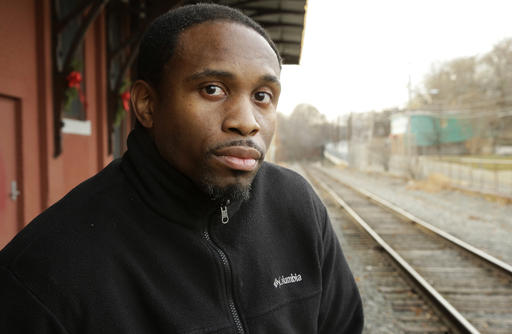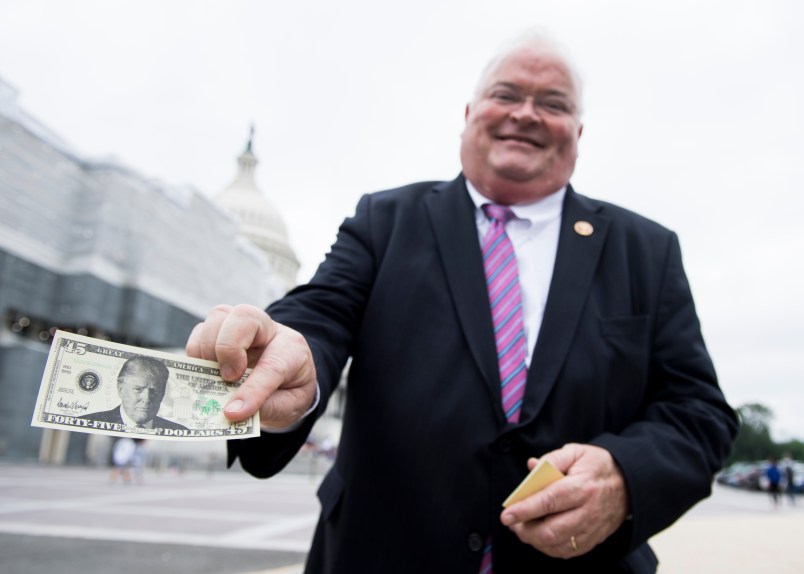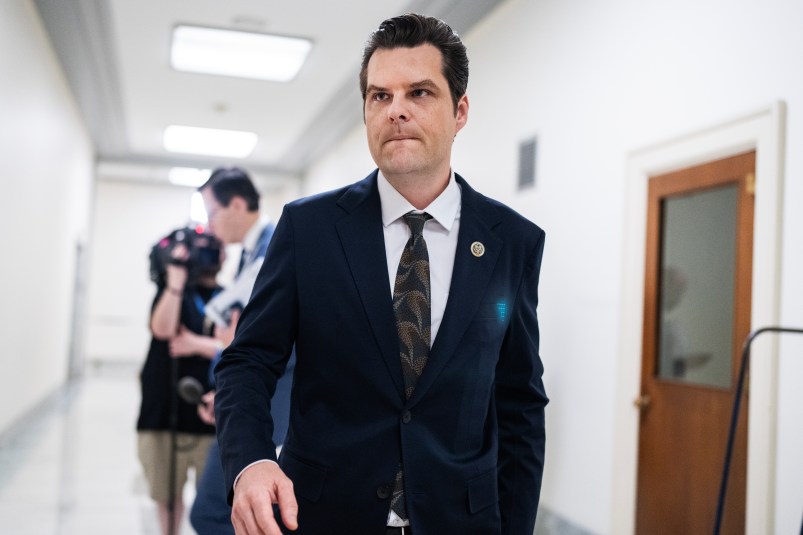PROVIDENCE, R.I. (AP) — A lawyer calls it the “third-shift terror squad”: a band of white officers who patrol the South Side of Providence at night and, residents say, strike fear into blacks and Latinos by harassing and in some cases beating them.
“They’re terrorizing the city,” said Charm Howie, a black former police cadet who was arrested by the crew. “I told them, ‘I’m a father. My kids are up there in the window. Please don’t disrespect me in front of my children.'”
A drive through the neighborhood for pizza in July 2015 ended with Howie splayed against a car and charged with disorderly conduct, assault and resisting arrest by the white rookie officers who stopped him for a broken headlight. A judge later acquitted Howie, citing among other things doubts about the officers’ credibility.
In interviews, Providence’s top police officials defended the department’s record and said they have worked to improve relations and discipline and retrain officers. More than 75 percent of the nearly 400-member force is white, versus 36 percent of the city’s 179,000 residents.
“We’re not perfect, but we’ve had a tremendous record of our use of restraint as a police department,” Police Chief Hugh Clements Jr. said last month after welcoming the city’s most diverse class of cadets to the academy. “We’re proud of our record, we’re proud of what we’ve done, and we anticipate we’re about to get better.”
Cellphone videos that surfaced last year showing questionable use of force against South Side residents have spurred calls for reform and a push for an ordinance banning racial profiling by police.
“Community members are telling us that police are following them, taking photos of youth when they get out of school, putting them in gang databases,” said activist Vanessa Flores-Maldonado. “The further you go down Broad Street, the more and more police officers you see. That’s no coincidence. The further you go down Broad Street, the more black and people of color there are.”
The head of Providence’s police union, Sgt. Robert Boehm, said the poor and heavily black and Hispanic neighborhood generates a lot of police calls, and that tends to translate into more citizen complaints against police. He said the area has had loud parties and “large crowds not cooperating with the police.”
Howie, a 35-year-old barber and personal trainer who has a criminal justice degree, knew the men who arrested him: They were his former classmates at the police academy, which he was dismissed from in 2014 after what he said was bullying by instructors and fellow trainees.
Steven Nelson, the city lawyer who prosecuted Howie after his arrest, argued during the non-jury trial that Howie “was obstinate, he was defiant and he was bitter” when he saw his former classmates, because “they made it and he did not.”
Howie contended that the officers disliked him from their days in the academy and that one of them telephoned another ex-classmate during the arrest to laugh at what was happening to Howie.
Judge Madeline Quirk acquitted Howie in November and admonished the officers for “huge” inconsistencies in their testimony.
Among the red flags, she said, was the cellphone call one of Howie’s former classmates, Patrolman Matthew Sheridan, made to another, Patrolman Christopher Benoit. Sheridan testified it was accidental — a pocket dial. Another former classmate, Patrolman Michael Place, was also involved in the arrest.
Advocates demanding reforms and firings hoped the ruling would have repercussions. So far, none of the officers have been disciplined for the encounter with Howie. But some have been punished for other encounters that happened just a few blocks away, always at night.
After video surfaced showing Sheridan beating a disabled Latino nightclub employee in 2015, the city said it gave him six months of departmental probation and retrained him in the use of force. The club employee pleaded no contest to disorderly conduct.
Sheridan attracted attention again in May when he arrested black writer and performance artist Christopher Johnson, at the time a candidate to be the state’s poet laureate, on charges of disorderly conduct, assault and resisting arrest. Johnson later wrote an essay titled “walking while black” that alleged Sheridan grabbed him and threw him against a cruiser.
Johnson’s lawyer said he hasn’t filed a complaint because the charges against him haven’t been resolved.
A few days later that May, cellphone video captured officers from the same South Side shift grabbing a Latina woman by the hair and throwing a man to the ground.
The city said Place, who pulled the woman’s hair, received a written reprimand, retraining and a one-day suspension. Benoit received an oral reprimand and was retrained. Another officer was also reprimanded and retrained.
Howie’s lawyer Shannah Kurland, who also represents Johnson and other South Side defendants, called the officers the “third-shift terror squad” and said the incidents “show a pattern of behavior that is completely unacceptable for any person, let alone one who is paid with our tax dollars to carry a gun.”
Providence Public Safety Commissioner Steven Pare wouldn’t address whether officers would face further discipline but said the department responds thoroughly to complaints.
He said he hopes the city expands the use of police body cameras so that “we can see the entire story and not just snippets” on the internet.
Copyright 2017 The Associated Press. All rights reserved. This material may not be published, broadcast, rewritten or redistributed.









